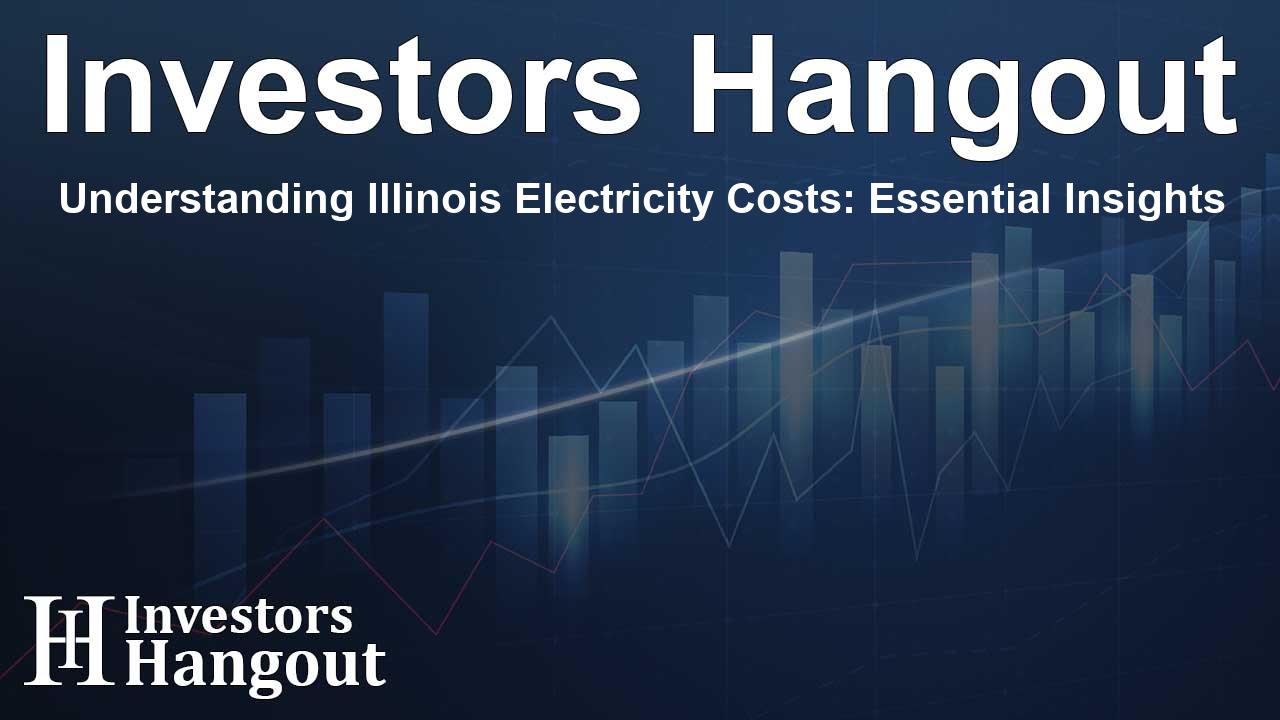Understanding Illinois Electricity Costs: Essential Insights

Rising Electricity Costs in Illinois: What Customers Need to Know
Customers in Illinois are facing significant increases in their electric bills as ComEd and Ameren implement major rate hikes. This situation arises from heightened demand for electricity and rising capacity charges imposed by energy markets.
Impacts of Rate Hikes by ComEd and Ameren
ComEd has announced a staggering increase of 53%, with rates rising from 0.06552 cents to 0.10028 cents per kilowatt-hour (kWh). Likewise, Ameren's rates will increase by 47%, shifting from 0.08277 to 0.12180 cents per kWh. Such substantial hikes reflect the ongoing pressures within the energy sector.
Understanding Capacity Charges
The primary driver of these price increases is the soaring capacity charges, which are fees designed to guarantee there is enough power available during peak demand times. Beginning this summer, ComEd customers will notice this increase in their bills, a direct result of the annual PJM Interconnection capacity auction held last year. John Schoen, Senior Communications Manager at ComEd, emphasized that these charges are passed on to consumers without any markup by the utility.
Future Projections and Market Trends
Industry experts warn that electricity prices may continue to climb, with projections indicating that demand could double in the upcoming years. Electric utilities have nearly doubled their forecasts of needed additional power by 2028, reflecting the growing consumption of electricity across various sectors.
Drivers of Increased Demand
The rapid expansion of technologies such as artificial intelligence data centers and the rising popularity of electric vehicles are pivotal factors contributing to escalating demand. Additionally, a general movement toward electrification in homes and businesses accentuates the existing pressure on electricity prices. Conversely, the phase-out of older fossil fuel power plants and delays in launching new renewable energy projects due to regulatory challenges have exacerbated the supply-demand gap, leading to higher costs.
Strategies for Customers to Mitigate Costs
In light of the rising electricity costs, customers might wonder how they can mitigate financial impacts. Illinois's energy choice program empowers businesses to shop for competitive electricity supply rates from various retail energy suppliers, providing a means to navigate the turbulent energy market more effectively.
Furthermore, customers can actively manage their bills by reducing energy usage during peak demand hours and adopting practices to minimize waste and enhance energy efficiency.
The Reality of Current Prices
As Jim Mathers, CEO of Energy Professionals, stated, this summer's price increase serves as a crucial wake-up call for those without fixed-rate plans. He noted, "Electricity prices in the U.S. have been on the rise since 2020, and the trend shows no indication of slowing. It's imperative for businesses to take proactive measures to avoid falling victim to potentially skyrocketing rates in the future." Since 2020, average U.S. electricity prices have risen by 6.8% annually, surpassing overall inflation rates. Even amidst ComEd and Ameren's price increases, many retail energy suppliers offer competitive rates and fixed pricing options.
Energy Professionals: A Resource for Businesses
Energy Professionals has been instrumental in supporting thousands of commercial and industrial customers as they navigate their energy options. They assist clients in negotiating better rates and securing protection against price fluctuations. If you are seeking to explore your pricing possibilities or request a complimentary rate analysis, consider reaching out to Energy Professionals directly.
For additional inquiries or media contacts, Martino Stanzani is available at 800-920-4631 for further assistance.
Frequently Asked Questions
What contributed to the electricity cost increases in Illinois?
The increases are largely due to climbing capacity charges and heightened consumer demand, influenced by factors like electric vehicles and AI data centers.
How significant are the rate hikes from ComEd and Ameren?
ComEd's rates have increased by 53%, while Ameren's rates rose by 47%, resulting in much higher costs for consumers.
What options do consumers have to manage rising electricity bills?
Consumers can explore the state's energy choice program, shop for competitive rates, and reduce usage during peak hours to lower their bills.
Why are electricity prices expected to continue rising?
Experts predict that electricity demand may double, coupled with supply challenges from retiring fossil fuel plants and regulatory delays for renewables.
How can Energy Professionals assist businesses in Illinois?
Energy Professionals helps businesses evaluate energy options, negotiate favorable rates, and protect against market volatility to manage costs effectively.
About The Author
Contact Dominic Sanders privately here. Or send an email with ATTN: Dominic Sanders as the subject to contact@investorshangout.com.
About Investors Hangout
Investors Hangout is a leading online stock forum for financial discussion and learning, offering a wide range of free tools and resources. It draws in traders of all levels, who exchange market knowledge, investigate trading tactics, and keep an eye on industry developments in real time. Featuring financial articles, stock message boards, quotes, charts, company profiles, and live news updates. Through cooperative learning and a wealth of informational resources, it helps users from novices creating their first portfolios to experts honing their techniques. Join Investors Hangout today: https://investorshangout.com/
The content of this article is based on factual, publicly available information and does not represent legal, financial, or investment advice. Investors Hangout does not offer financial advice, and the author is not a licensed financial advisor. Consult a qualified advisor before making any financial or investment decisions based on this article. This article should not be considered advice to purchase, sell, or hold any securities or other investments. If any of the material provided here is inaccurate, please contact us for corrections.
